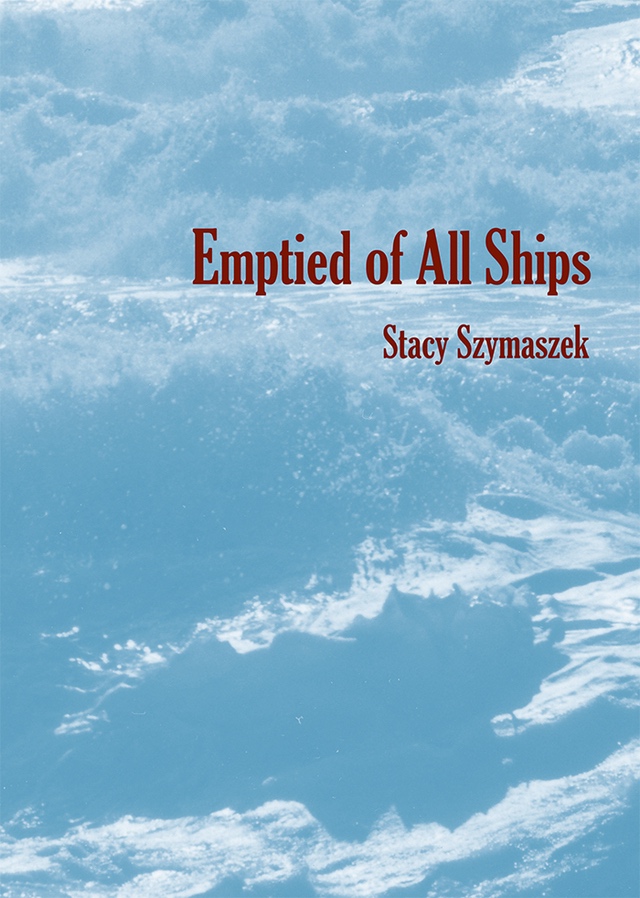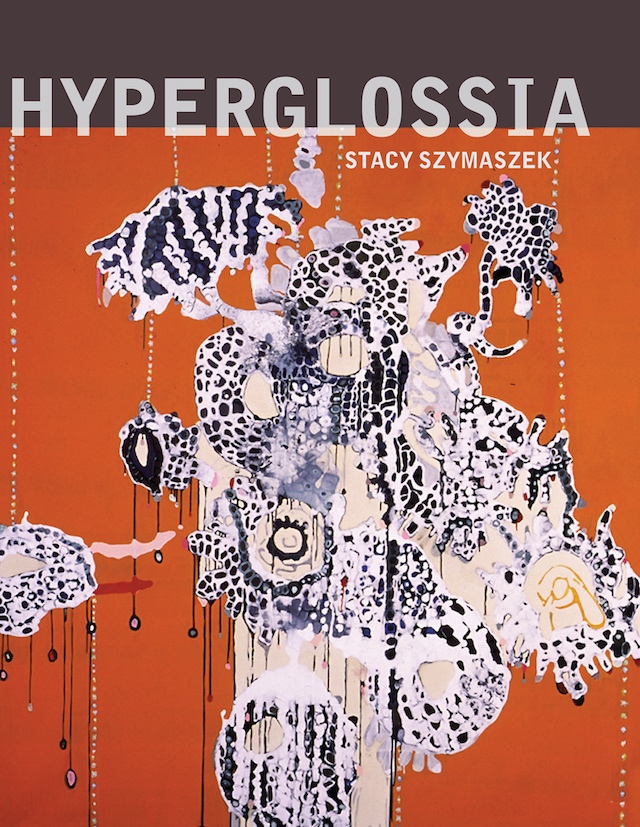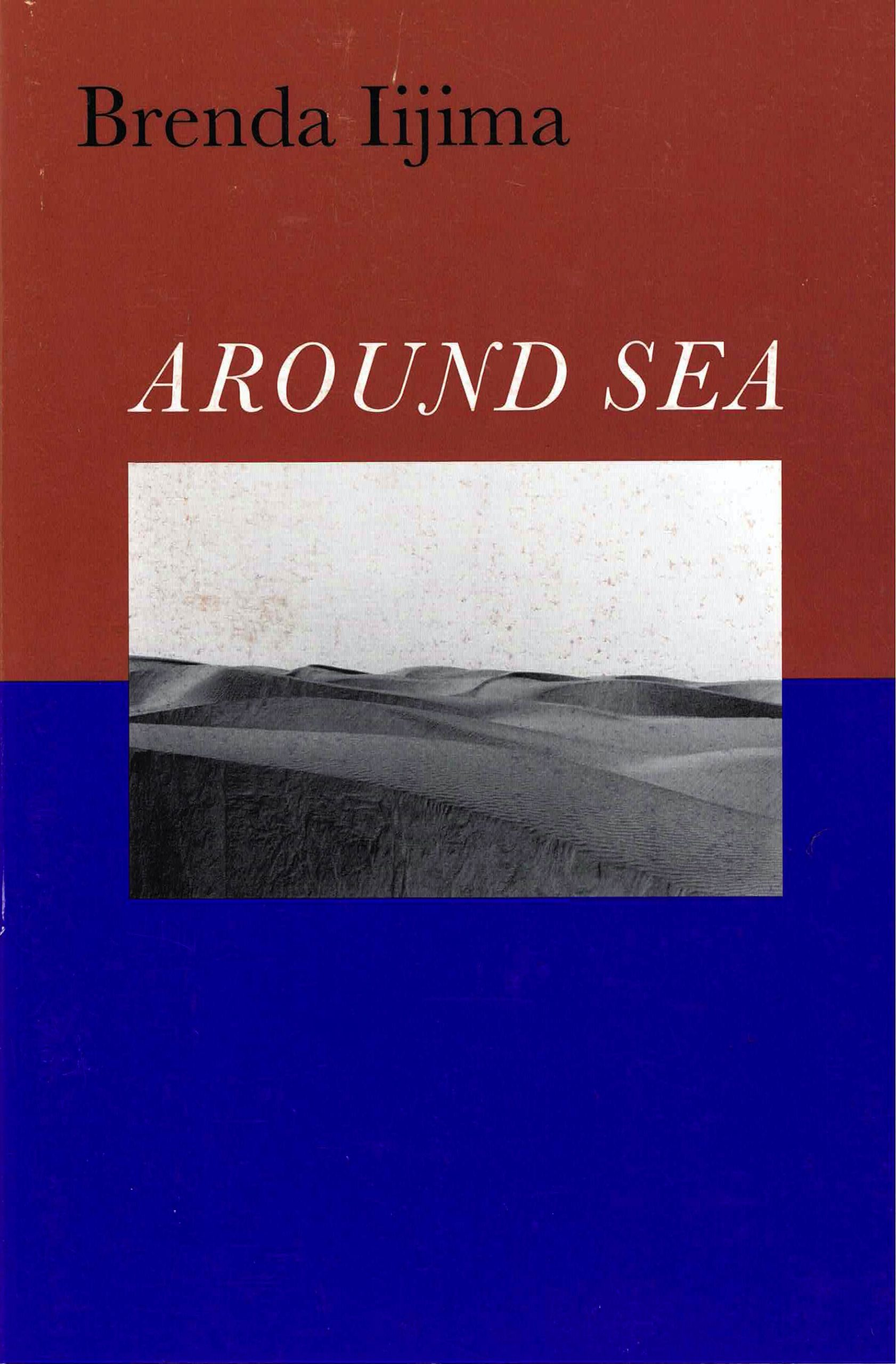With drawings by Drew Kunz
Emptied of All Ships is Stacy Szymaszek’s debut book of poetry. Deploying a stripped-down line of just one or a few words, Szymaszek creates a fast-moving current of language, rife with word play and camp innuendo, that periodically slows into eddies of ponderously material sensuality. Emptied of All Ships confouonds all genres, mixing queer ecopoetics with postmodern epic and maritime pastoral.
Stacy Szymaszek
Praise for Emptied of All Ships
Stacy Szymaszek places her readers in a border situation. Here is a poetics of extreme condensation. “ink a hinge here/ ‘n here/ ‘n mother/ make me limber.” Where traces are, lines remain. Magic is implicated in every shot and countershot. This is idiosyncratic and stunning work.
— Susan Howe
Each poem is what I am looking for: a resonance with a particular location, an intelligence unafraid of its humanity, a sort of desperate adequacy with the people or objects that Szymaszek encounters.
— Etel Adnan
Emptied of All Ships is a setting out into crucial waters. Each word here has its own weight and position—its own vital movement between poles of loss and discovery. With our sight-lines thus widened, the observance itself becomes activated—another mode of transport. A poetry of brevity is a tough task (especially the word-as-line), but in these pages it registers as achievement.
— George Albon
To read Emptied of All Ships is to enter an unfixed universe of ideas with taut internal logic, multiple shifts in perspective, syntactic gaps, and a strapping, nearly epic synechdoche. It is a world where sensual juxtapositions abound and elude, keeping the reader off balance. The form is at once concrete and motion-filled… [D]rawings throughout the book act as cartography to mark our way through the unsettled whole, while Brenda Iijima’s ghostly and panoramic cover art brings us right into the vortex of water’s creative and destructive force.
— Denise Nico Leto, Xantippe 4/5
Reading Emptied of All Ships… one is lulled, as by waves, by narrow lines of verse flowing, page by page, most of them composed of only one or two words. The whole book takes seafaring as its métier, and this is both literal and metaphoric, historical and current, about craft and emotion.
— Vincent Katz
These stanza-pearls are dressed in tight corsets emulating a Roman, masculine brevity. Her use of craft (“last to touch / your craft”) tells us shucks we are outside the law…
— Julian T. Brolaski





Her lines may be tightly controlled, stripped down to the minimum, but they allow for largesse of interpretation as bountiful, fluid, and full of inherent contradictions as the sea itself…
— Laura Sims, Jacket 28
“The people who pop up in these poems are sailors in Melville’s sense—they are not ordinary people tied to safety, tied to bank accounts and traditional beliefs of society; rather, they are people on the fringe or are people ready to explore the edge of safety or of what lies just beyond safety.”
—William Allgrezza, Galatea Resurrects